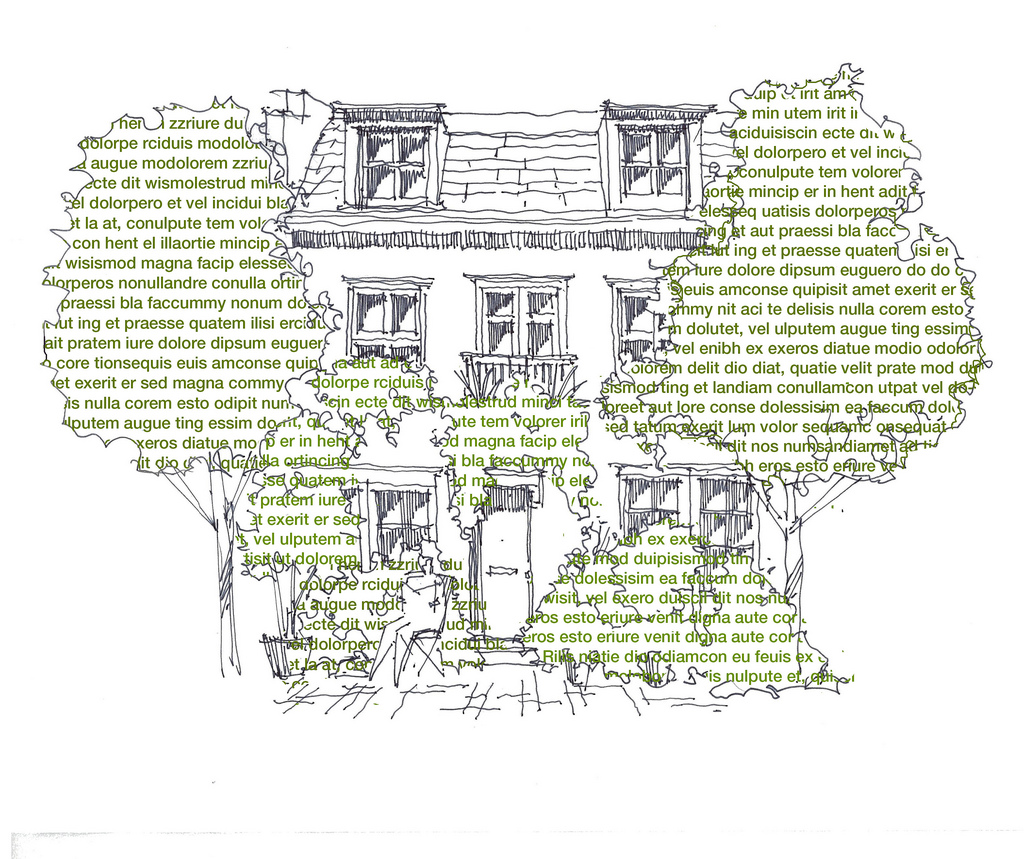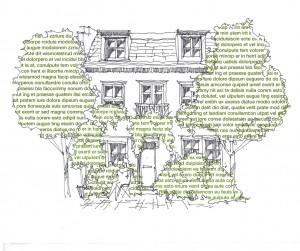This is a few different mini-posts rolled into one, but they all revolve around MOOCs so I decided to spare the reader the clickthroughs. This post discusses
- Distinctions between MOOCs
- MOOCs and Research Dissemination Lags
- Overused vocabulary (ie, disruptive)
Distinctions between Connectivist and Institutional MOOCs
George Siemens makes this case much better than I can so I will first refer you to his recent post outlining the differences between connectivist MOOCs (cMOOCs) and the other, headline grabbing, well-funded MOOCs (xMOOCs), but there are distinct differences between the approaches being taken with massive open courses. One stresses connections, collaboration, dialogue, while the other attempts to (generally) export traditional models of education en masse. I wrote about this as well just the other day. I only wish the reporter about to begin writing the umpteenth article on MOOCs might refer to these distinctions (as they aren’t that subtle) in an effort to distinguish the two. One represents an investigation into learning itself (a pedagogical approach) and one investigates learning distribution mechanisms (scaling out traditional modes of education). I do agree with Siemens that both are essentially platforms, an ecosystem of tools and environments and structure for learning, but I also believe that all pedagogy is essentially a platform. It is an environmental context for learning.
I wanted to mention that we are starting to see bleeding across these distinctions, however. Some institutional MOOCs have connectivist (or at least constructivist) elements (where knowledge construction is collaborative), yet still exist in the xMOOC camp (not sure distinctions like that will matter in a few months). One such example (disclaimer alert: I am a graduate) are the Coursera offerings from the University of Edinburgh. All have been designed with constructivist elements and the E-learning and Digital Cultures course, in particular, is a full-blown hybrid of cMOOCs and xMOOCs. Some might disagree with this distinction, but as a course it revolves around collaboration, connections, and joint exploration of digital cultures, all the hallmarks of constructivist learning.
So, in a span of a few months we have seen (or at least this is when I started to notice) this transition from
- MOOCs as connectivist experiements
- MOOCs as well-funded juggernauts
- Discretion in noticing distinctions between xMOOCs and cMOOCs
- Appropriation of the better elements of both (cyborg MOOCS!-just messing, we don’t need another term)
This transition has progressed at an impressive speed (even by corporate standards) and makes a nice transition into my next point.
MOOCs and Research Dissemination Lags
This is more of a response to my MobiMOOC colleague Osvaldo Rodriguez in a recent blog post which he logically laid out some of the deficiencies of academic publishing surrounding MOOCs. That is the publishing cycle for peer-reviewed literature might be inadequate the alacrity of the subject matter. Osvaldo provides a good model (the scientific community) for a possible expedited cycle for academic publishing.
Perhaps as it happened in the world of physics and basic science, educational research should start implementing e-prints and an archiving system. See for example arXiv (an archiving system for electronic preprints) and inSPIRE (a retrieval system).
- Is there an advantage for scientists to make their work available through repositories, often in preliminary form?
- Is there an advantage to publishing in Open Access journals?
- Do scientists still read journals or do they use digital repositories?
arXiv makes for a nice model for the educational community, as does the simple procedure of disentangling articles from issues. That is, publish articles as they come in (a perpertual diet of individual articles as opposed to the gorging of an issue), a model that a few open access journals are following. So Osvaldo, I agree with you, but I have another related area that I am more focused on. Namely, what are the research questions to pursue?
I have worked with Osvaldo on some of these questions in our MobiMOOC Research Team and I know of many others pursuing the same line of questioning, but I would be interested to see a more formalized research agenda put forth by an organization like JISC or EDUCAUSE or something along those lines. At least an organization that can act as a conduit for disseminating best practices. I don’t want to formalize the MOOC, but rather contribute to its perpetuation in different versions. I want to see continued experimentation in course structure, (another instance where cMOOCs excel, especially those without formal organizational requirements), different experiments in knowledge construction through collaboration, and ‘extension’ activities (after-course collaboration), namely a clearinghouse for skilled labor (my half-baked idea). Further, we need to see some research on differentiation of MOOCs for different learner groups (disciplinary, age, etc.).
Overused Vocabulary in MOOCs (and Educational Technology)
Methods of thought which claim to give the lead to our world in the name of revolution have become, in reality, ideologies of consent and not of rebellion. -Albert Camus
- Disruptive
- Revolutionary
- Game-changing
Of all the passions of mankind, the love of novelty most rules the mind. In search of this, from realm to realm we roam. Our fleets come loaded with every folly home. -Shelby Foote


